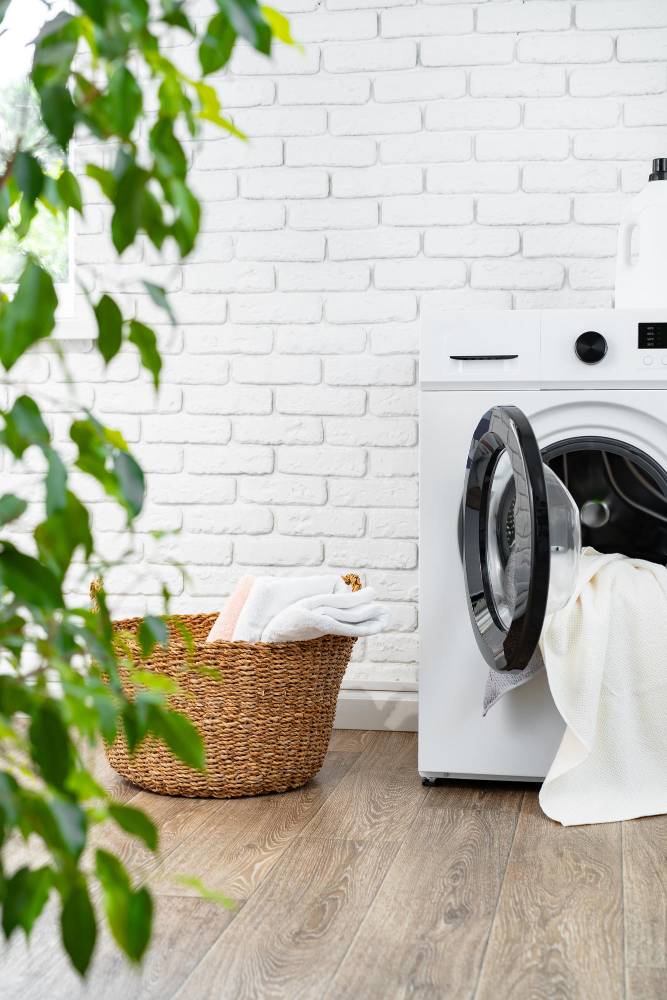Free Septic System Inspection ($99 Value) Free enzyme treatment, Financing Available
Request Service Now!
407-565-7044Free Septic System Inspection ($99 Value) Free enzyme treatment, Financing Available
Request Service Now!
407-565-7044
When considering your long list of household chores, laundry might seem like one of the easier tasks. Yet, what many homeowners don't realize is that their laundry habits can have a serious impact on their septic tank pumping schedule. At Septic Blue, we provide dependable services for local property owners, including septic tank repair and septic tank cleaning. As a septic company, we’ve seen firsthand how improper laundry practices can lead to septic tank issues. Read more to find out how your laundry routine affects your septic system and what you can do to keep everything working as it should.
Doing laundry is a necessity, but doing excessive laundry loads can strain your septic system. Each wash cycle releases a large volume of water into your septic tank, which needs time to settle and allow solids to separate from liquids. When too many loads are done in quick succession, the tank doesn’t have sufficient time to process the water, leading to potential overflow and system failure. This can lead to a septic tank repair or even the need for a new septic tank installation in severe cases. Instead, spread out your laundry loads throughout the week. This allows your septic tank to handle the wastewater more efficiently, reducing the risk of overflow and extending the lifespan of your system.
One often overlooked aspect of laundry is the lint filter. When lint accumulates in your washing machine’s filter, it can eventually enter your septic system, where it might clog pipes. Lint, which is composed of small fibers from clothing, can bypass the washing machine’s filter if it’s not cleaned regularly. Once in the septic system, these fibers can combine with other materials to form clogs. Regularly cleaning your lint filter can prevent these problems. Make it a habit to check and clean the lint filter after every few loads of laundry.
Excess detergent doesn’t always dissolve completely and can form soap scum, which clogs pipes and reduces the efficiency of your septic tank. Certain detergents contain chemicals that can disrupt the natural bacteria in your septic tank, which is essential for breaking down waste. To avoid these issues, measure your detergent carefully and use only the recommended amount. Consider switching to liquid detergents, as they tend to dissolve more easily than powder detergents. If you prefer powder detergents, ensure they are fully dissolved before adding clothes to the wash.
Some detergents contain harsh chemicals, bleach, and phosphates, which may harm the beneficial bacteria in your septic tank. Detergents labeled as “septic-safe” or “biodegradable” are designed to be gentler on your septic system, ensuring that the bacteria can continue to do their job effectively. Look for detergents with low levels of surfactants and phosphates. Opting for eco-friendly detergents benefits your septic system and also reduces your environmental footprint. Always do a small patch test to ensure your chosen detergent alternative works well with your laundry.
Practicing good laundry habits is a great way to avoid a new septic tank installation or repair. However, if you’ve already noticed signs of buildup in your tank, give Septic Blue a call. We can provide a dependable septic tank pumping and cleaning service so you can get your system back on track. Avoid plumbing issues and contact our office to schedule your next septic tank cleaning.
Orlando winters may not bring freezing temperatures like the rest of the country, but that doesn't mean your septic system gets a free pass during the cooler…
Is sewage backing up into multiple drains in your house? Have you spotted mushy spots near your septic tank? Is there a strong sewage smell near your…
Flushable wipes have become the go-to product for those looking for a feeling of superior cleanliness, hygiene, and freshness compared to dry toilet paper. But are flushable…
Your septic system plays a crucial role in keeping your living and working spaces safe. While these systems are designed to last, they can become overwhelmed during…